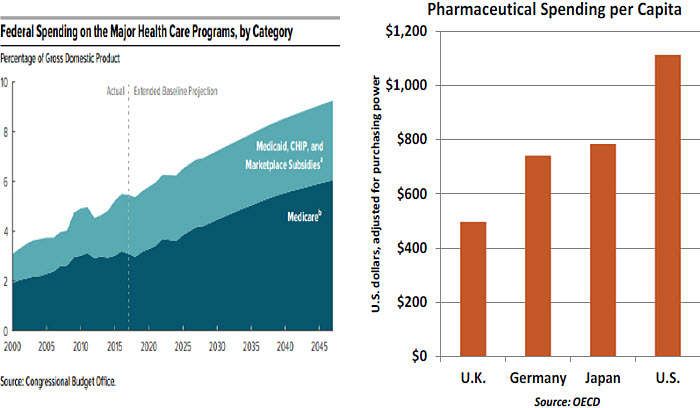Republican efforts to repeal and replace Obamacare may have collapsed, but as Northern Trust economists Carl R. Tannenbaum and Ankit Mital wrote in a note published Friday, there’s a broader healthcare debate that still needs to happen.
“Coverage and care for the roughly 20 million people covered by the ACA are very important,” the economists wrote. “But a total of 330 million Americans are in need of better and more economical health care. Congressional debate needs to take much wider perspective on the topic.”
As the Northern Trust charts below suggest, drug prices must be part of that discussion, given that pharmaceuticals account for about 10 percent of total U.S healthcare spending, or some $325 billion a year. That steep annual bill is also expected to rise 6.3 percent a year over the next decade, the economists say — a pace far faster than overall inflation or income growth.

None of that should come as a shock, and the policy options for addressing the problem aren’t a secret either. Tannenbaum and Mital outline five policies that could help patients and the government shell out less for drugs:
- Capping costs or limiting access to particularly expensive new treatments
- Making generic versions of drugs available earlier and more easily
- Allowing the largest insurer in the country — Medicare — to negotiate for lower drug prices
- Reducing the incidence or severity of expensive chronic diseases like diabetes through broader adoption of wellness programs
- Allowing the re-importation of drugs from countries like Canada, where the medications cost less.
The question is whether or when we’ll move on from debating Obamacare to some of these other structural issues.





